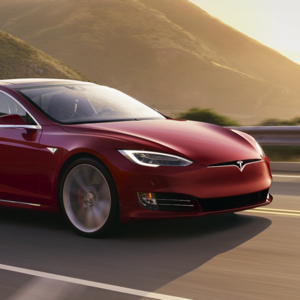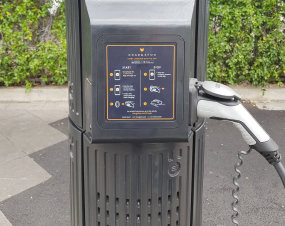Stay-at-home orders are having seismic effects on people’s lives as coronavirus sweeps the globe. Very little seems certain; oil prices have crashed, conservative governments are promising record stimulus, people are singing and shouting obscenities off their balconies.
So what can we rely on to remain the same amid a crisis of uncertainty? What foundations can we use to rebuild some sense of normalcy?
Air, surely. Air and water are constants. Even as supermarket shortages put our eating routines into disarray, we’ll still be breathing the same gaseous cocktail we’ve always enjoyed. Air definitely won’t change.
The air is changing
Stay-at-home restrictions are having predictable effects on people’s driving habits as coronavirus sweeps the globe. Very little road-use is permitted; WA have barricaded regional areas, Melbourne police are issuing fines for driving lessons then taking them away, elephants are roaming the streets of India.
And since almost all of the cars being taken off the roads are combustion-powered, there have been significant reductions in air pollution across the globe. Here’s notoriously smoggy Los Angeles earlier this week:

It’s like a postcard, right? For contrast, here’s what LA usually looks like in April:

Similar scenes can be found worldwide. Pictures, data, and people’s lungs are proving what environmentalists and EV supporters have been saying for years: take fuel-driven cars off the roads and the air will noticeably (and quickly) improve.
How is air pollution? Why is smog?
Not all pollution is smog and not all smog is pollution, but the fact remains that cutting vehicle emissions reduces both.
The term smog was originally a portmanteau of smoke and fog born out of the cripplingly polluted societies of the Industrial Revolution. While we still haven’t moved on from coal, we did eventually shift the power stations away from highly populated areas and air quality improved slightly by the onset of the 20th century.
Unfortunately, as that century progressed, fuel-driven cars came along and brought the issue right back. Most cities aren’t congested enough to have the omnipresent smog of the Industrial Revolution days, but the pollutants have been shown to cause lung damage even in relatively low quantities.
There are a number of measurable pollutants that can be used to test a city’s air quality, but most air quality indices use ultra-small particulate matter (PM2.5) as a general measure. PM2.5 is caused by smoke, including vehicle emissions, and has been linked to wheezing, coughing, chest pain and breathing difficulty.
Since New York City was locked down on March 22, their PM2.5 air quality index hasn’t left the ‘good’ threshold. The average for month of April is the lowest its been in years.
So can we all breathe a clean sigh of relief? Is fresh air the silver lining to the COVID cloud?
A glimpse forward, but not yet reality
Unfortunately not. Just as the world’s vehicles came off the roads in March, they will return in the months to come and the cycle of pollution will continue. So long as cars have exhausts, we get smog.
Which, of course, brings us to electric vehicles. Everywhere EVs replace combustion cars, smog and pollution will fall. Our lungs will thank us for making the switch.
Many cities have introduced regulations to restrict or ban combustion vehicles specifically for this reason. London’s low emission zone (and ultra low emission zone) has been growing for years now, with plans to be extended further to promote further EV adoption in the UK capital.
Coincidentally, London’s air pollution has been consistently falling since the LEZ was introduced in 2008.

Together with the UK’s other EV-promoting policies, London can expect further reductions to their illegal levels of air pollution.
Where are Australia’s fuel efficiency standards?
This is just one of the reasons we push for the electrification of global transport. Make the switch today and you might just breathe a little easier.




